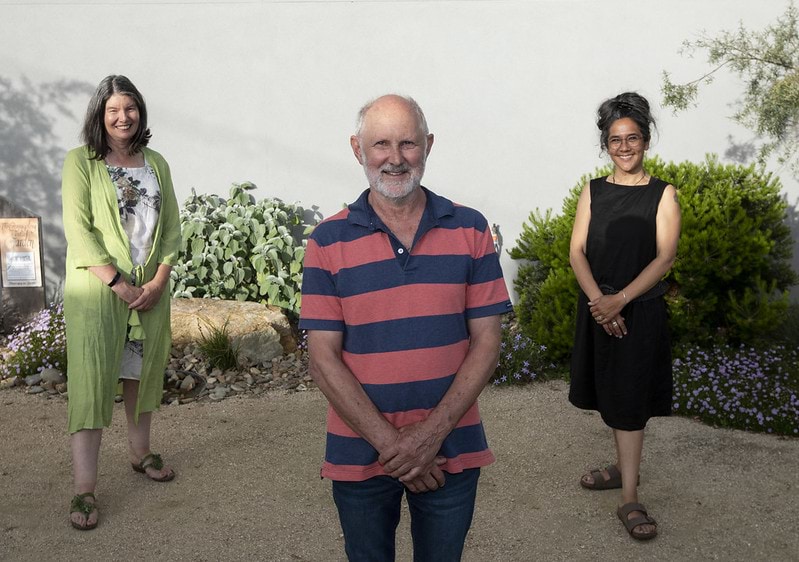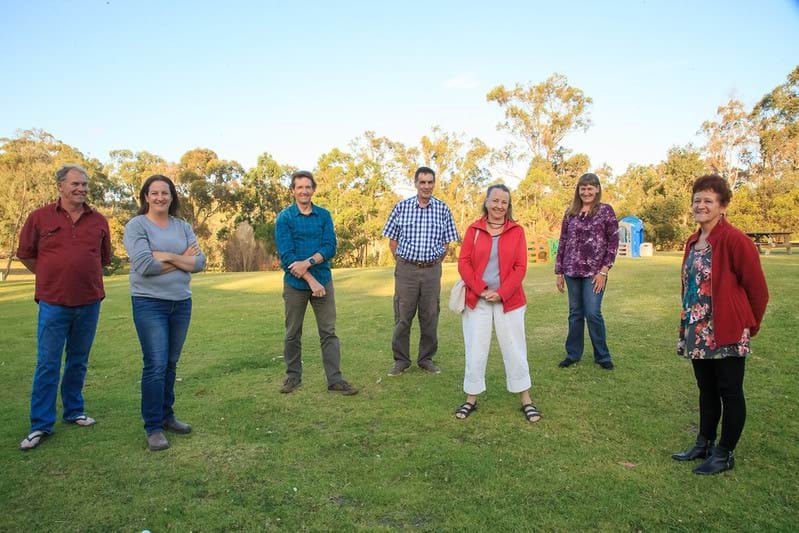Over 20 Community Recovery Committees
Bushfire Recovery Victoria has worked with local councils to help establish and support Community Recovery Committees (CRCs) across fire-affected areas. Communities decide if, when and how to form a CRC, with councils and government playing an enabling role.
CRCs are the definition of a community-led recovery. They are a strong and independent voice to government and council and develop community plans that set the agenda for their district’s long-term local recovery.
CRCs will exist over the long-term. In East Gippsland, CRCs include Omeo and district, Buchan and district, Mallacoota and district, Sarsfield, Clifton Creek, Bruthen and Waiwera.
CRCs in Orbost and Cann Valley are now forming. CRCs in Towong Shire include Upper Murray, Walwa, Berringa/Peninsula, Tintaldra, Towong, Cudgewa, Berringama/ Lucyvale, Corryong, Thowgla, Biggara and Nariel Valley. Communities in Alpine Shire are represented by Alpine CRC.
Support for CRCs
All Community Recovery Committee members are volunteers who give up their time, effort and expertise to help their communities recover. Many members were themselves directly impacted by the disaster.
Recognising this long-term commitment, councils and Bushfire Recovery Victoria provide dedicated support to assist CRC members in delivering their duties.
Council and regional BRV staff work with CRCs in an enabling role to ease their time and administration pressures, provide advice about services and grants, and help bring their visions into reality.
CRCs also have access to operational funding to support their work, and can draw upon a panel of local suppliers to undertake special projects like feasibility studies, grant applications and project delivery.
Alpine CRC
Alpine CRC is closely supported by Alpine Shire Council. CRC Chair, Fiona Nicholls, says:
“We have discovered recovery is a journey, with the contradictions of never being fast enough and needing to take time. Participating in the CRC process is an opportunity and a responsibility, to provide a voice for the many different communities of our region to find their pathway to recovery.”
Mallacoota and District Recovery Association
Pictured from left to right are Jenny Lloyd, David Appleton and Trindi Suratman, three of the 12 leaders of the Mallacoota and District Recovery Association, or MADRA for short. In the aftermath of the fires, a ‘thinking group’ of locals formed, and the creation of a CRC was endorsed by a town-wide meeting. MADRA’s inaugural Committee was chosen in a formal election, in which 88 per cent of the Association’s 764 members voted.
Clifton Creek Community Recovery Committee
Pictured left is the Clifton Creek Community Recovery Team. They say the community-led journey has “given a sense of control back to residents.”
“Overwhelming support from individuals, groups, organisations, agencies and government has enabled us to dream big and work together in achieving our goals of being a resilient, inclusive, connected, rural neighbourhood who can thrive in a safe and healthy environment.”
CRCs in East Gippsland are supported by council’s dedicated network of Place Managers.
Based in community
Eight Community Recovery Hubs
Our network of Community Recovery Hubs provides a long-term presence in bushfire-affected areas and our doors are open to anyone in the community who needs a problem solved or an issue heard.
Inside a Hub, you’ll find experienced, compassionate and local Hub staff, a welcoming space for the community, room to host meetings, and a place for locals to meet with key service providers.
All Hubs serve their surrounding districts, including with mobile services. Six Hubs are operated by Bushfire Recovery Victoria. The Bairnsdale and Upper Murray Hubs are operated by council and supported by Bushfire Recovery Victoria.
BRV also maintains two regional teams of staff in East Gippsland and the North East, working with communities and councils. Regional staff coordinate wellbeing services, help local groups with grant advice, ensure Community Recovery Committees have the tools and support they need to succeed, and more.
Updated

